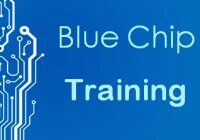 Overview
Overview
The Certified Kubernetes Application Developer (CKAD) program has been developed by The Linux Foundation and the Cloud Native Computing Foundation (CNCF), the host of Kubernetes.
This instructor-led, live training (online or onsite) is aimed at Developers who wish to confirm their skills in design, build, configure, and expose cloud native applications for Kubernetes.
On the other hand, training is also focused on gaining practical experience in Kubernetes application development, so we recommend taking part in it, even if you don’t intend to take CKAD exam.
NobleProg have been delivering Docker & Kubernetes training from 2015. With more than 360 successfully completed training projects, we became one of the best known training company worldwide in field of containerization. Since 2019 we are also helping our customers to confirm their performance in k8s environment by preparing them and encouraging to pass CKA and CKAD exams.
Format of the Course
- Interactive lecture and discussion.
- Lots of exercises and practice.
- Hands-on implementation in a live-lab environment.
Course Customization Options
- To request a customized training for this course, please contact us to arrange.
- To learn more about CKAD, please visit: https://training.linuxfoundation.org/certification/certified-kubernetes-application-developer-ckad/
Requirements
- An understanding of cloud native application concepts and architectures.
- Experience in programming in Python, Node.js, Go, or Java.
- An OCI-Compliant Container Runtime, such as Docker or rkt.
Audience
- Developers
- Kubernetes Users
Course Outline
-
Core concepts
- Kubernetes architecture
- Cluster components
-
Building the app
- Creating containers
- Configuring local Docker repo
-
Pod design
- Base configuration
- Liveness and readiness probes
- CPU and memory constraints
- Resource limits for a namespace
-
Security
- Security context
- Service accounts
- Secrets
- Kubernetes network policy
- Linux capabilities
-
Deployment configuration
- Controllers: deployments, daemon sets and stateful sets
- Jobs and cron jobs
- Config maps
- Rolling upgrade, blue-green deployment, canary deployment
- Using Helm for managing deployments
- Kubernetes API resources
-
Multi-container pods
- Sidecar, ambassador and adapter containers
- Init containers
-
Services & Networking
- Services and different types
- Load balancing
- Ingress controller
-
State Persistence
- Persistence of application state in Kubernetes
- Ephemeral storage
- Persistent volumes and claims
- Storage classes
